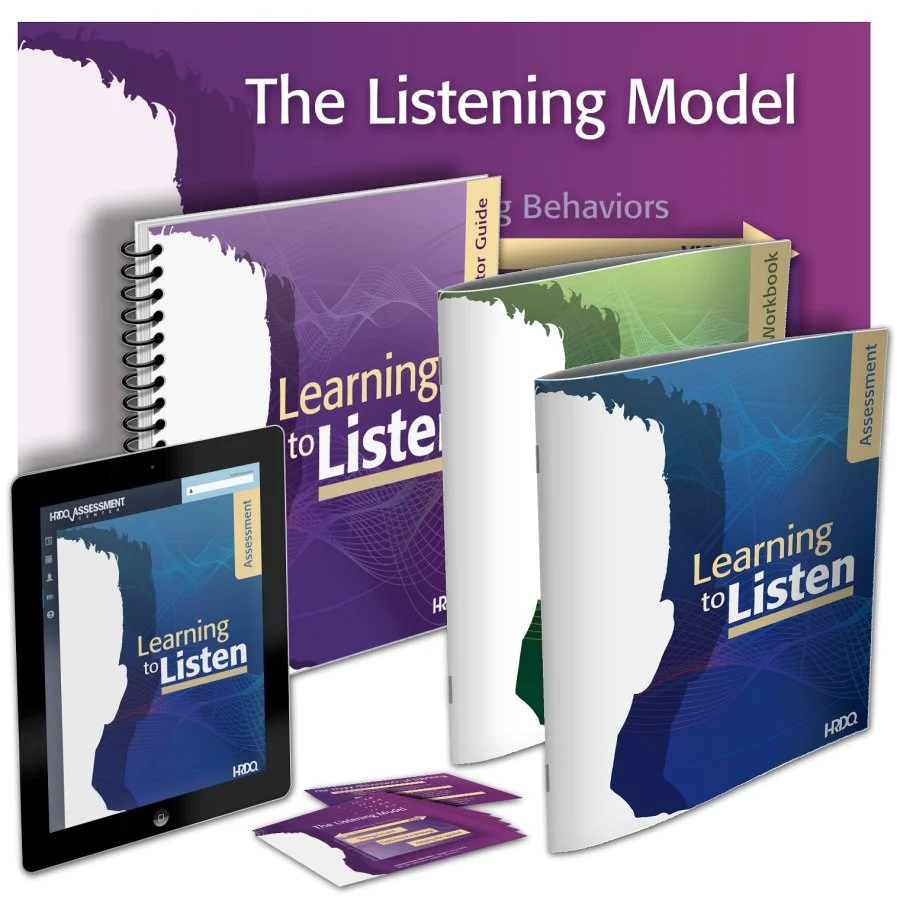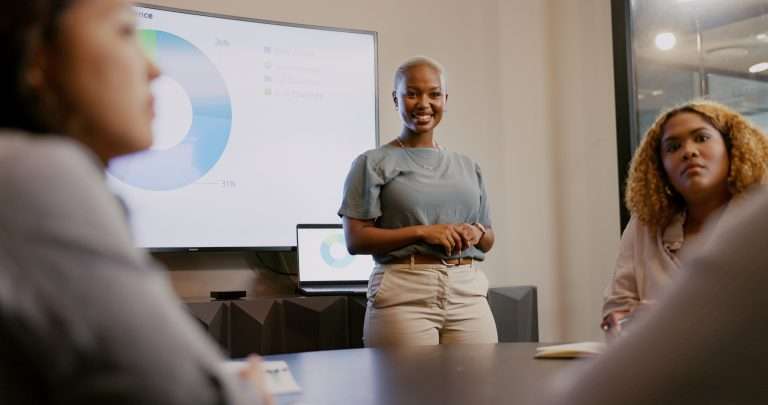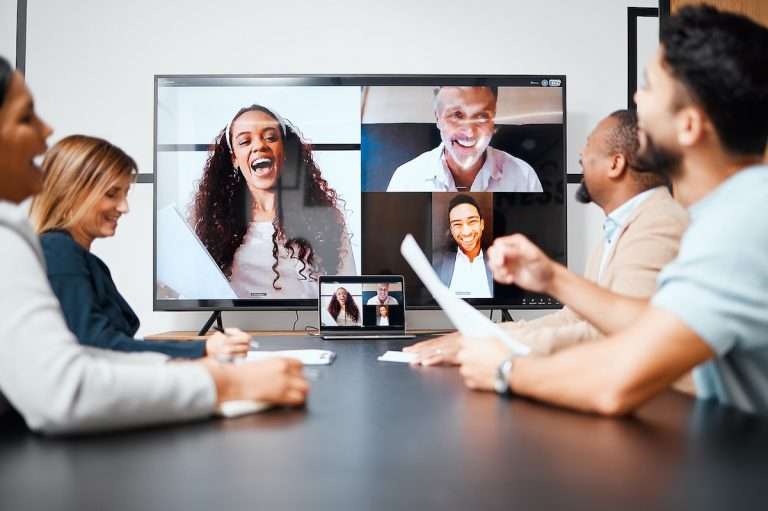Why Listening Well Is Important
1. Build Strong Relationships
Effective communication lies at the heart of every strong relationship – whether personal or professional. Listening is the foundation of communication. When we listen well, we validate the speaker’s feelings, ideas, and thoughts, which builds trust and deepens the bond. However, falling victim to the barriers of listening can lead to misunderstandings, misinterpretations, and emotional distance.
In personal relationships, being listened to helps individuals feel valued and respected. When someone takes the time to listen, it fosters intimacy, reduces conflict, and enhances mutual understanding.
In professional settings, listening is very important. Leaders who listen to their teams foster a culture of openness and innovation. Employees who feel heard are more engaged, motivated, and loyal. On the other hand, poor listening by a leader can result in disengagement, poor morale, and even high turnover. Effective communication, anchored by active listening, enables collaboration and helps resolve conflicts swiftly and constructively.
2. Enhance Empathy and Emotional Intelligence
Listening well enhances our capacity for empathy. Empathy is the ability to understand and share the feelings of another, and it is a vital aspect of emotional intelligence (EI). People with high EI are often better at navigating social complexities, managing relationships, and understanding the emotional needs of others.
When we listen attentively and overcome the barriers of listening, we can better recognize emotional cues and non-verbal communication, such as tone, facial expressions, and body language. This allows us to connect on a deeper emotional level with the speaker, fostering understanding and compassion. Empathy enables us to step into someone else’s shoes, which can soften our judgments and open the door to meaningful connections.
3. Resolve Conflicts
One of the most powerful outcomes of good listening is conflict resolution. Misunderstandings and miscommunications are at the root of many conflicts, whether in personal relationships, workplaces, or social settings. When people fail to listen carefully, they may jump to conclusions, make assumptions, or react defensively without fully understanding the other person’s perspective.
By listening well, we allow others to express their grievances, concerns, or frustrations, which can often de-escalate a potentially volatile situation. When individuals feel heard, they are more likely to remain calm and cooperative, even if they disagree. Moreover, listening to understand – rather than to respond – enables us to identify the root cause of the conflict and address it more effectively.
4. Promote Learning and Growth
Listening is a critical skill in learning and self-improvement. In any setting, whether formal education or informal conversations, listening to others opens us up to new perspectives, knowledge, and insights. When we listen, we broaden our understanding of the world, deepen our awareness of different viewpoints, and challenge our own assumptions.
In professional development, for instance, active listening is crucial when receiving feedback. By attentively listening to constructive criticism, we can identify areas of improvement and grow in our roles. Similarly, in personal growth, listening to others’ experiences, stories, or advice can inspire us, motivate us to reflect on our own lives, and encourage personal transformation.
5. Encourage Inclusivity and Diversity
In an increasingly diverse world, listening is a key to fostering inclusivity. When we actively listen to people from different backgrounds, cultures, or identities, we demonstrate respect for their experiences and viewpoints. Listening is an act of openness, signaling that we value different perspectives and are willing to engage in meaningful dialogue.
Inclusivity flourishes when people feel that their voices are being heard and respected. In workplaces, for example, diverse teams thrive when everyone feels empowered to share their ideas and opinions. Leaders who listen to a range of voices are more likely to foster innovation and creativity and cultivate a culture of belonging.
Barriers to Effective Listening
Despite its importance, listening well is not an easy skill to master. Several barriers to effective listening can prevent us from fully engaging in the act of listening. These obstacles may be internal, such as personal biases, or external, such as environmental distractions. Understanding these barriers is the first step toward overcoming them and becoming a more effective listener.
1. Internal Distractions
One of the biggest barriers of effective listening is the constant stream of thoughts running through our minds. It’s easy to become preoccupied with our own concerns, thoughts, or anxieties while someone else is speaking. This internal distraction can prevent us from fully concentrating on what the speaker is saying.
For example, while having a conversation, we might be thinking about an upcoming meeting, a to-do list, or a personal issue. As a result, we may only half-listen, missing important details or misinterpreting the speaker’s message. To overcome this barrier, it’s important to practice mindfulness and focus entirely on the present moment during conversations.
2. Personal Biases and Assumptions
Personal biases and preconceived notions can cloud our ability to listen objectively. When we approach a conversation with fixed assumptions about the speaker or the topic, we may filter their words through our own lens, interpreting them in a way that reinforces our existing beliefs.
For example, if we hold a negative opinion of someone, we may be less inclined to listen to their ideas or dismiss their perspective altogether. Similarly, cultural biases can prevent us from understanding someone’s viewpoint, especially if it differs significantly from our own. To become better listeners, we must recognize these biases and approach conversations with an open mind, allowing ourselves to be challenged by new perspectives.
3. Emotional Reactions
Emotional reactions, such as anger, frustration, or defensiveness, can create significant barriers to effective listening. When we feel emotionally triggered by something the speaker says, our instinctive reaction may be to defend ourselves, interrupt, or mentally prepare a rebuttal rather than truly listen.
For instance, in a heated argument, one person may feel attacked and stop listening altogether, focusing instead on crafting their counterargument. This often leads to further escalation of the conflict, as neither party feels heard or understood. To mitigate this, it’s essential to practice emotional regulation – taking a step back, managing our emotions, and listening with the intent to understand rather than to respond defensively.
4. Environmental Distractions
In today’s hyper-connected world, environmental distractions are a constant challenge to effective listening. Whether it’s the buzz of a smartphone, background noise, or the urge to multitask, external factors can significantly impede our ability to focus on a conversation.
For example, attempting to have an important conversation while checking emails or scrolling through social media is a recipe for poor listening. Divided attention prevents us from engaging fully, leading to miscommunications or a shallow understanding of the topic. To overcome this, it’s crucial to create a conducive listening environment by turning off distractions, making eye contact, and dedicating time solely to the conversation at hand.
5. Listening to Respond, Not to Understand
Many people fall into the habit of listening to respond rather than to understand. Instead of focusing on the speaker’s message, they are mentally preparing their own response, waiting for their turn to speak. This “rehearsing” can distract from the actual content of the conversation and lead to misunderstandings or missed opportunities for deeper connection.
For instance, in a discussion, someone might be so eager to make their point that they overlook the nuances of what the other person is saying. To counter this tendency, it’s essential to practice active listening – engaging with the speaker’s message, asking clarifying questions, and reflecting on their perspective before formulating a response.
6. Lack of Empathy
Empathy is a crucial component of effective listening, but it is often lacking, especially in difficult or contentious conversations. Without empathy, we may be less willing to truly understand the speaker’s emotions, motivations, or point of view. This can result in a superficial understanding of the conversation and a failure to connect on a deeper level.
For example, in a workplace setting, a manager who lacks empathy may dismiss an employee’s concerns or fail to recognize the emotional impact of their decisions. Similarly, in personal relationships, a lack of empathy can create distance and alienation. Developing empathy requires a conscious effort to see the world through the other person’s eyes, to listen not just to their words but to the feelings behind them.
How to Become a Better Listener
Now that we’ve explored the importance of listening and the barriers to effective listening, let’s turn to strategies for becoming a better listener. Like any skill, listening can be developed through practice and intentionality.
1. Be Fully Present
- Eliminate Distractions: Put away your phone, avoid multitasking, and focus entirely on the person speaking.
- Make Eye Contact: Good eye contact shows that you’re interested and paying attention.
- Avoid Thinking About Your Response: Instead of planning what you’ll say next, concentrate fully on what the speaker is communicating.
2. Practice Active Listening
- Paraphrase and Summarize: Repeat back what the speaker said in your own words to confirm your understanding. For example, “So what I’m hearing is…” or “It sounds like you’re feeling…”
- Ask Clarifying Questions: Ask open-ended questions like “Can you elaborate on that?” or “What did you mean by…?” This helps deepen your understanding and shows interest.
- Use Verbal and Non-Verbal Cues: Nod, use expressions that show interest, and give verbal affirmations like “I see” or “That makes sense.”
3. Listen Without Judgment
- Suspend Biases: Try to keep an open mind and not let preconceptions or personal biases cloud your understanding.
- Avoid Jumping to Conclusions: Don’t assume you already know what the speaker is going to say or how they feel. Let them express their thoughts without interruption.
4. Practice Empathy
- Put Yourself in Their Shoes: Try to understand the speaker’s perspective, emotions, and motivations.
- Acknowledge Emotions: Reflect back the emotions you hear. For instance, if someone is upset, you could say, “It sounds like this has been really difficult for you.”
5. Avoid Interrupting
- Let Them Finish: Resist the urge to interrupt or interject while the person is speaking. Give them the time they need to fully express themselves before you respond.
- Practice Silence: Allow moments of silence, especially if the speaker is trying to collect their thoughts. Silence can help both of you process the conversation more deeply.
6. Minimize Internal and External Distractions
- Clear Your Mind: Practice mindfulness techniques to help focus on the present moment, which can reduce distractions from internal thoughts.
- Choose a Conducive Environment: If possible, select a quiet space for important conversations to reduce external distractions.
HRDQ’s Learning to Listen model is a perfect solution to gaining the skills you need to be a great listener, both in business and personally. To learn more about this model and how to overcome the barriers to effective listening, check out Unlock Better Communication with Learning to Listen.


























